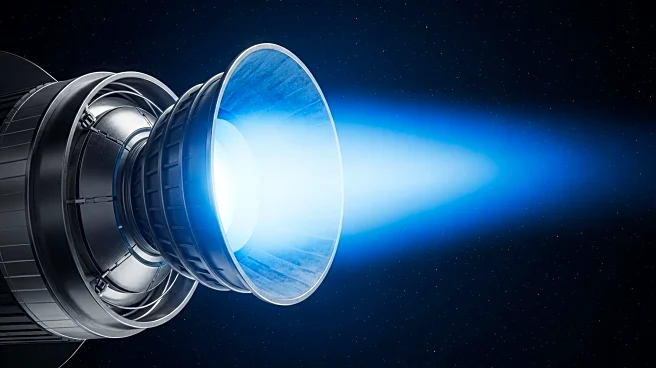What's Happening?
Chemists at the University at Albany have created a new high-energy compound, manganese diboride, which could revolutionize rocket fuel and make space flights more efficient. This compound releases more energy relative to its weight and volume compared to current fuels, allowing for less fuel storage and more room for mission-critical supplies. The compound is over 20% more energetic by weight and about 150% more energetic by volume compared to aluminum used in solid rocket boosters. Despite its high energy, it is safe and only combusts when it meets an ignition agent.
Why It's Important?
The development of more efficient rocket fuel is crucial for the advancement of space exploration. By reducing the amount of fuel needed, space missions can allocate more space for scientific equipment and samples, enhancing research capabilities. This innovation could lead to cost savings and increased mission success rates. Additionally, the compound's versatility may have applications beyond rocket fuel, such as in catalytic converters and plastic recycling, potentially impacting other industries.
What's Next?
Further research and testing are needed to fully understand the potential applications of manganese diboride. The compound's properties may lead to new technologies and materials that can be used in various fields. As the space industry continues to grow, the demand for efficient and safe fuels will likely increase, driving further innovation and development in this area.











